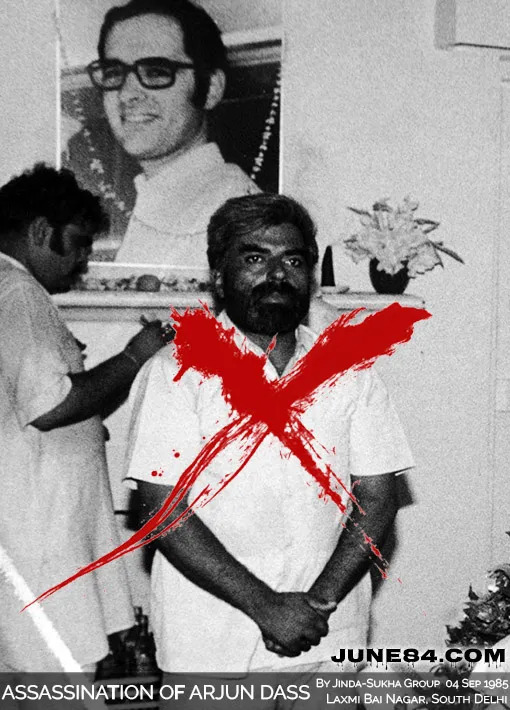Dark Legacy: arjun das assassination in 1984
Posted by konax 89899
Filed in Other 245 views
The arjun das assassination in September 1985 stands out as one of the most shocking political killings of its era. It was a direct outcome of the communal unrest and lack of accountability tied to arjun das 1984. To see why it happened, we must revisit the turbulent climate of 1984, the assassination itself, and the consequences that continue to echo today.
The Background of arjun das 1984
The events of 1984 marked a dark time in India’s history. Following the assassination of Prime Minister Indira Gandhi on 31 October, anti-Sikh riots erupted across Delhi and beyond. These riots were not spontaneous. Reports, affidavits, and inquiries indicated that politicians had actively fueled the violence.
Arjun Dass, a Delhi Metropolitan Councillor and close associate of the Gandhi family, was repeatedly named in survivor accounts. Witnesses claimed he incited mobs, urged attacks on Sikh homes and shops, and even participated in the desecration of gurdwaras.
For the Sikh community, arjun das 1984 became a symbol of betrayal by leaders who misused their authority. With justice delayed and denied, resentment only grew stronger.
The Assassination of Arjun Dass
On 4 September 1985, the arjun das assassination unfolded at Laxmibai Market in Delhi. Sikh militants Harjinder Singh Jinda, Sukhdev Singh Sukha, and a third accomplice meticulously planned the strike.
They arrived in the market area disguised as civilians, armed with revolvers and a sten gun. In a swift operation, they opened fire, killing Arjun Dass and one of his bodyguards while leaving several others wounded. Eyewitnesses recalled hearing pro-Khalistan slogans before the attackers escaped on scooters and an auto-rickshaw.
The assassination caused immediate uproar. For many, it was a shocking act of militancy; for others, it was seen as vengeance for arjun das 1984. Either way, it carried enormous symbolic weight.
The Significance of the arjun das assassination
Justice Outside the System
In the aftermath of arjun das 1984, legal justice seemed absent. Despite overwhelming testimonies, political figures accused of leading the violence remained untouched. The arjun das assassination was viewed by some as retribution outside a justice system that had failed victims.
Political Shock and Security Response
The killing rattled the political elite. Within days, security around other leaders named in riot reports was massively increased. Politicians like Sajjan Kumar, Jagdish Tytler, and H.K.L. Bhagat received armed escorts and round-the-clock protection. This response confirmed the credibility of the threat, but also highlighted the government’s reluctance to prosecute those accused.
Escalation of Tensions
Far from resolving grievances, the assassination only deepened divisions. It emboldened militant groups and provoked harsher state crackdowns. The cycle of attack and counterattack intensified, keeping communities trapped in fear and mistrust.
Linking arjun das 1984 to His Assassination
The arjun das assassination cannot be understood without examining arjun das 1984. Dass’s alleged role in organizing mob violence, desecrating religious scriptures, and encouraging attacks made him a prime target.
For the Sikh militants, killing Dass was not just punishment for one individual. It was a symbolic strike against impunity. It served as a warning that those accused of leading mobs could not escape accountability forever.
Lessons from the arjun das assassination
Justice Must Be Swift and Fair
The absence of fair trials for arjun das 1984 gave rise to frustration and anger. When courts fail, people begin to seek justice in their own way—often through violence.
Retaliation Only Fuels More Violence
Although the arjun das assassination felt like revenge to some, it extended the cycle of bloodshed. True peace can never come from vengeance.
Political Leaders Must Be Accountable
Allowing powerful figures to evade accountability only damages democracy. The lesson from 1984 is clear: political influence must not shield anyone from the law.
Recognition Is Key to Healing
Communities heal only when victims are acknowledged and compensated. Without recognition, pain lingers and future conflicts become more likely.
Why the arjun das assassination Still Matters
Even after decades, both arjun das 1984 and the arjun das assassination remain relevant to understanding communal politics in India. They show the devastating consequences of unchecked power, injustice, and hatred.
For today’s readers, these events highlight the importance of:
-
Supporting movements that promote communal unity.
-
Demanding accountability from political institutions.
-
Strengthening democratic channels for justice.
By learning from this history, modern societies can avoid repeating cycles of violence rooted in unresolved grievances.
Conclusion
The arjun das assassination of 1985 was not a random event but the direct outcome of anger rooted in arjun das 1984. While it brought immediate retribution for some, its long-term effect was to intensify conflict and prolong suffering.
The real takeaway is that vengeance cannot replace justice. Societies must build systems strong enough to hold leaders accountable and recognize the pain of victims. Only then can communities move forward toward lasting peace.
Remembering arjun das 1984 alongside the assassination ensures these lessons are not forgotten—and that such tragedies are not repeated.
